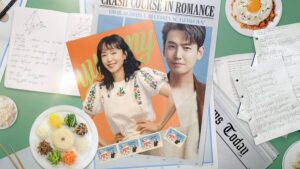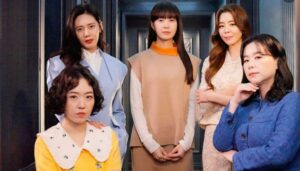“Crash Course in Romance” (일타 스캔들)

“Crash Course in Romance” is about an elite hagwon math tutor who is so popular that mothers line up at all hours to get their children seats at his lectures. By chance, he encounters a former national handball player who gave up her dreams of competing on an international level to care for her niece, who was abandoned by her mother.








